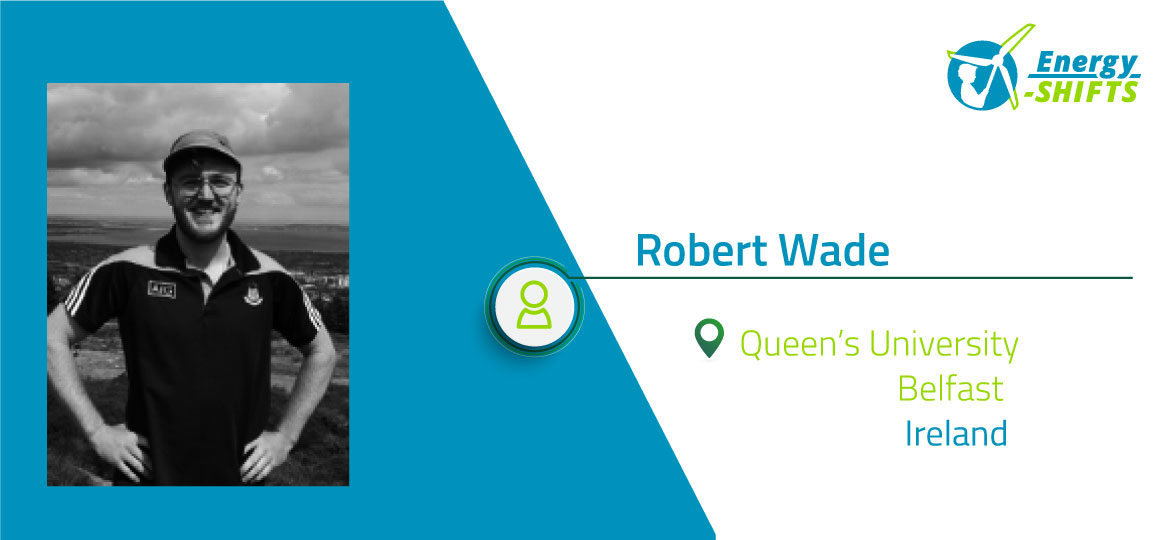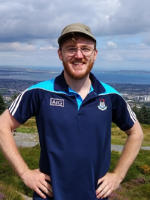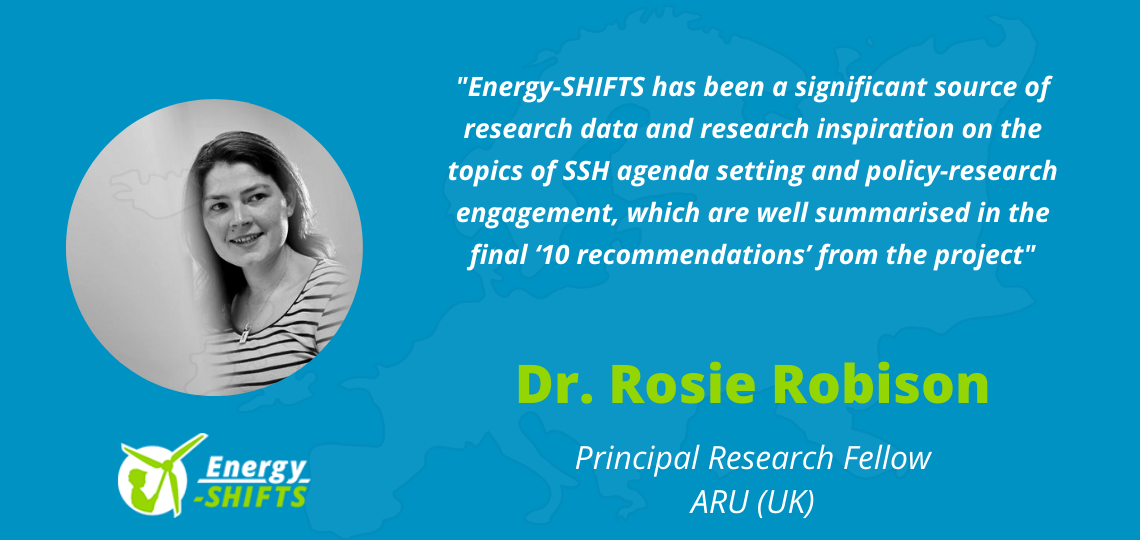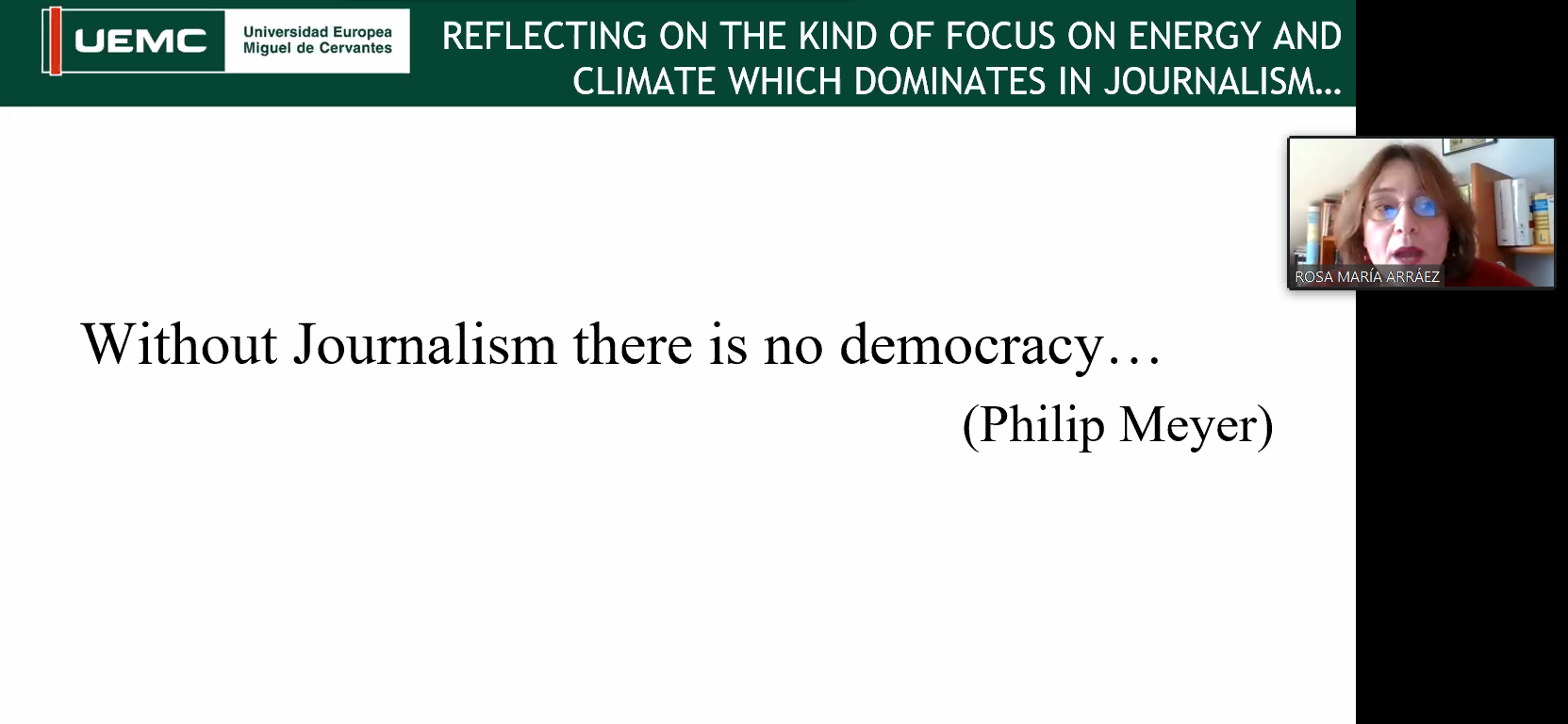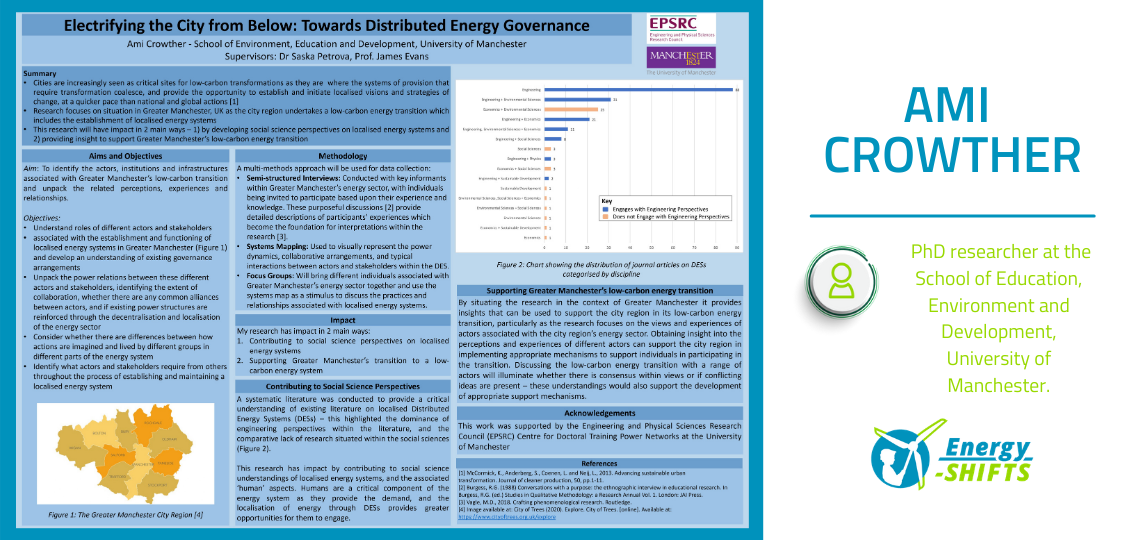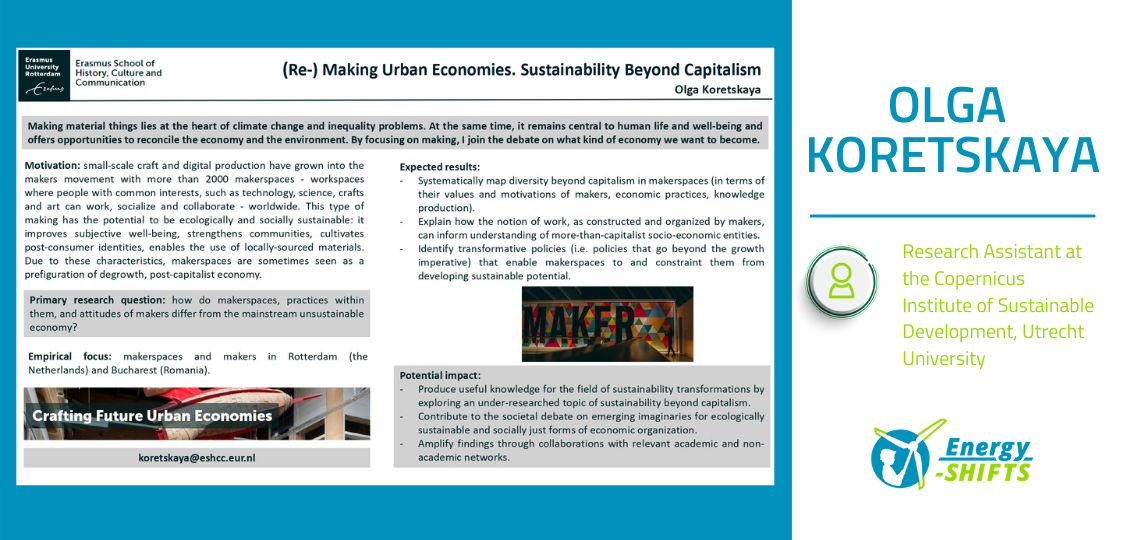In this blogpost, Robert Wade, explains his experience within his Energy-SHIFTS ESR programme where he participated in Working Groups activity and how his participation impacted in his research
As an early stage researcher, working with Energy-SHIFTS Working Group 1 has provided invaluable insights into current issues for social science and humanities (SSH) research on renewable energies. I have also been very fortunate to be able to work with a group of thoughtful and welcoming researchers whom I would not have met otherwise.
The main task I have been working on so far has been the Horizon Scanning. Based on the Delphi method, this involves surveying ~80 researchers in the field of renewables SSH and asking them to suggest key future research questions (with justifications). My role in this process involves editing and clustering the questions into groups. The 100 questions finally selected as guiding future research will be presented to the European Commission to feed into the next Strategic Energy Technology Plan (SET-Plan).
I have also been engaged in supplementary activities such as documenting interview reflections of Working Group members as well as compiling an annotated bibliography which will showcase the breadth and depth of progress in the broad field of renewables SSH over past decades.
This has been an excellent opportunity for me to do impactful research at an early stage of my career, for which I am very grateful. I have gained an incredible insight into the large field of renewables SSH research; its historical development, current knowledge, and points for further inquiry. This process has also sparked some interesting reflections on the nature of scientific progress itself.
Social Acceptance of Renewables and the Nature of Scientific Progress
My personal PhD project looks into the political economy of wind energy and the role of landownership and rent relations in the development of renewable energy technologies. My project is part of a wider, EU-funded training network of early stage researchers called MISTRAL , with a focus on the social acceptance of renewable energy technologies.
Some expert interviewees for the Horizon Scan indicated that social acceptance research is perhaps saturated and there is a need to move on. In contrast to this, however, a large percentage of the total suggested research questions for the future touched directly or indirectly on social acceptance. This is an interesting puzzle for me, particularly being situated within the MISTRAL network.
One reason for the concept of social acceptance still being used so frequently might be that it has become an established idea and now guides how researchers view the world and formulate research problems. Additionally, we also see new and better-organised resistance to renewables across Europe, which may show that social acceptance research is more vital than ever. Some researchers in the field of social acceptance are trying to move the field beyond old assumptions and ways of thinking, with more reflexive and critical approaches becoming more common.
These are issues of practical importance in the context of a climate emergency but on a more fundamental level they also touch on the nature of scientific progress and the philosophy of science, i.e. how research programmes evolve. My involvement in Energy-SHIFTS (and MISTRAL) has provided a vantage point to engage in these reflections and will hopefully enable me to contribute to these important conversations.

